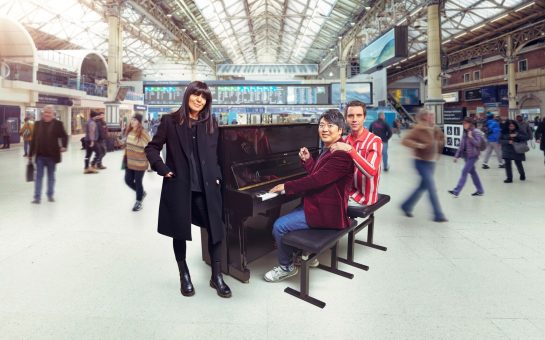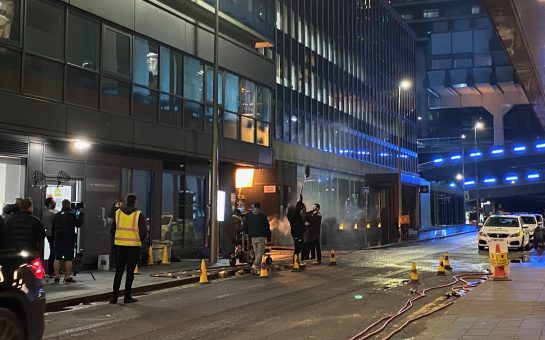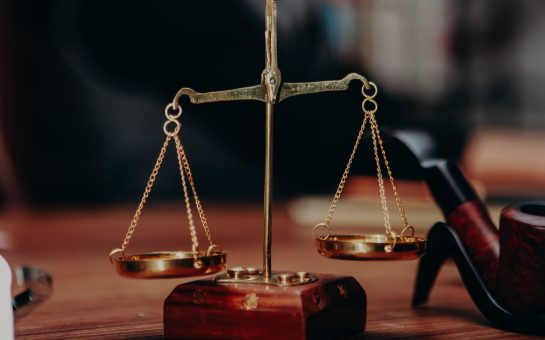The Oscar Pistorius trial has dominated the news over the last 24 hours.
Its televised broadcast has allowed millions to scrutinise proceedings and form an opinion.
#OscarPistorius, #PistoriusTrial, and #Pistorius have been among the most popular hashtags on Twitter as Judge Thokosile Masipa delivered her verdict –guilty of culpable homicide.
The unfettered access to the trial may seem a tad unusual for people in the UK, as English courts have never allowed cameras to show criminal trials in progress.
The Criminal Justice Act 1925 banned photography in court and this ban was later extended to film, TV, and even drawing in court.
With parliamentary sessions broadcast on TV, and local council sessions streaming online, court cases are one of the last remaining democratic processes in the UK not to be broadcast.
But the tide could well be changing.
Last year’s Crime and Courts Act amended the law to allow for the introduction of TV cameras in court, but so far they have only been allowed to cover appeal courts, judicial pronouncements and other similar hearings.
Around the world things are quite different.
An estimated 100million people worldwide stopped what they were doing to watch or listen to the verdict announcement of O.J. Simpson’s murder trial in 1994.
More recently, high-profile, foreign court cases such as that of Anders Behring Breivik for the gun and bomb massacre in Norway in 2012, and of course, of Oscar Pistorius for the murder of Reeva Steenkamp, played out in front of the television cameras.
Other democratic processes are televised, political inquiries are televised, and foreign court cases are televised.
With this in mind, MM took to the streets of Manchester to as the following question:
Should court cases be televised in the UK?
|
Options |
Results |
|
Yes |
42% |
|
No |
58% |
The results of the poll were somewhat divisive, though 58% are against the idea of televising trials.
Some feel it might act as a deterrent, help educate people about the legal system and make them better informed, or act as a check on legislative power.
Others feel it sensationalises private issues, negatively influences the behaviour of defendants, lawyers, and judges alike, or puts undue pressure on legal authority figures.
Alison Woodley, 32, an art gallery assistant from the Northern QuarteR, said:“My gut feeling is no. I think it’s unnecessary for the general public to see all of that.
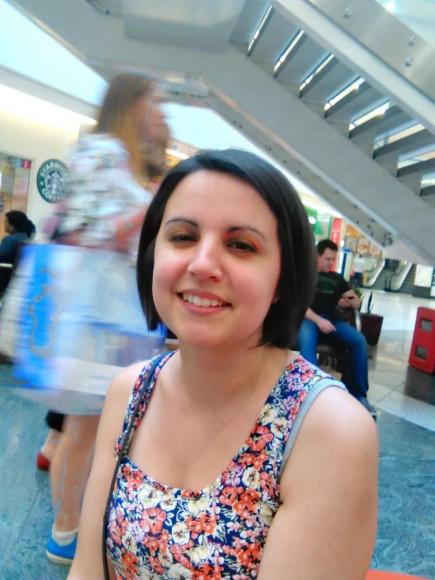
UNNECESSARY: Alison Woodley says her gut feeling is no
“It’s for the court to decide and the public being able to make up their own minds isn’t necessarily helpful to them.
“A lot of the coverage of the Pistorius trial made me feel uncomfortable. I feel it was obviously very difficult for him and other people who were there to watch it.”
Rachel O’ Grady, 30, an accountant from Central Manchester, said: “It’s too personal. Broadcasting it has over-publicised and trivialised the trial. I think it should be a private issue.”
Alison Brown, 32, a landscape planner from Birchwood, was similarly put off by the luridness of Pistorius’ trial.
She said: “It was far too intrusive for everybody involved. It was voyeuristic. I didn’t want to watch it out protest.
“I definitely think we shouldn’t have them. I think what we’ve got right here at the moment is fine.”
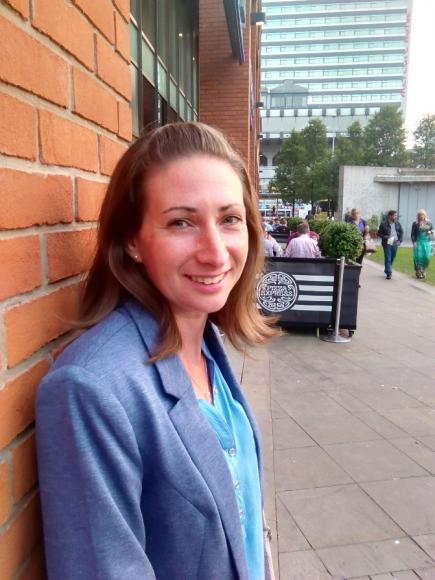
INTRUSIVE; Alison Brown believes televising trials would be ‘voyeuristic’
Dave Clarke, 53, a marketing consultant from Alderly Edge, is similarly opposed to the idea.
“I think it sensationalises it,” he said. “I think it makes it more difficult for the judiciary to operate as a legal system.
“I think the courts should be more independent of what sensationalism brings to the process.
“They run the risk of playing to the camera. It happened with OJ Simpson and Oscar Pistorius, and other situations.
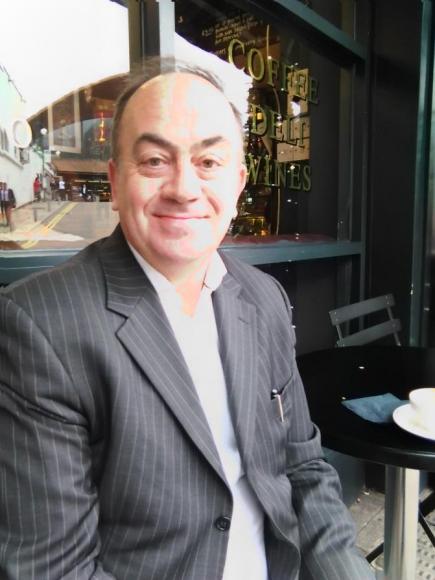
RISKY: Dave Clarke believes televising trials would sensationalise them
“I think if the public want to know that the process is trustworthy and transparent they can always go to the court themselves.”
Paul Clay, a 48-year-old Theatre Producer living in Central Manchester, also cites ‘celebrity’ cases as negative examples of court cases being televised.
He said “I give you the Oscar Pistorius case, I give you the OJ Simpson case, in both cases we’ve had someone who was a celebrity and it’s turned into a bit of a circus.
“We’ve created a situation whereby justice doesn’t get done. So no, I don’t think court cases should be televised in the UK. I think it interferes with the process of justice.”
Russell Phelan, a 42-year-old plumber from Castlefield, was more receptive to the idea of televised court cases in the UK.
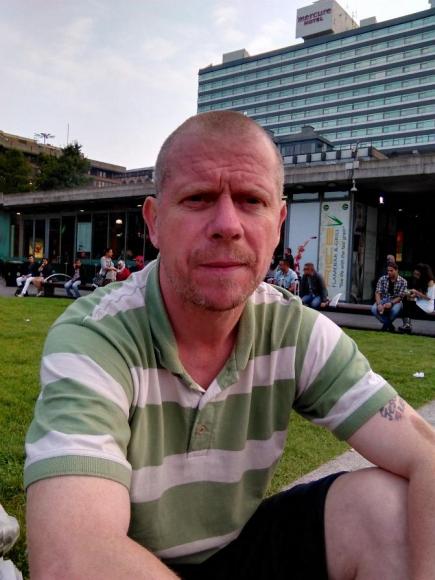
UNDECIDED: Paul Kennedy thinks certain serious cases should be televised
“I suppose you’ve got points for and against it,” he said. “The public could see it and make up their own minds. They would be aware of all the goings-on in the court.
“But problems would arise, say, in a rape case.
“There’s always going to be a stigma involved – for the victim and for the accused even if they’re proven innocent. Cases like that shouldn’t be on TV.”
Paul Kennedy, 51, a storage container engineer in the Salford Quays, is similarly cautious.
“I think cases should be televised in certain circumstances. For serious crimes: murder, rape, anything involving rape,” he said.
“Some crimes are sickening. I think if children are involved the perpetrators should be brought before the public’s eye so they can see what they’ve been done.”
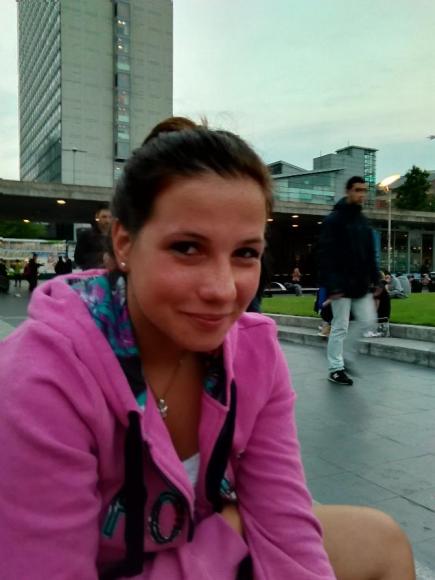
EDUCATE: Elisabetta Grison thinks televising trials might serve as a deterrent
Lorraine Curry, a 25-year-old medical investigation assistant, thinks televising some court cases would be in the ‘public interest’.
“If there was anyone out there who might be dangerous to society it’s important for the public to know who they are. I think it would protect them,” she said.
“I think because some people don’t read newspapers and only watch television, it’d be the only way they’d get that information.”
Elisabetta Grison, a 20-year-old student in Spinningfields, also supports the idea.
“I think it might help educate people; they would be better informed about the legal system and how it works,” she said.
Elisabetta further believes greater awareness might act as a deterrent to would-be criminals.
“I don’t think people would necessarily stop committing crimes, but if people were more aware of the consequences they might think twice about what they were doing,” she said.
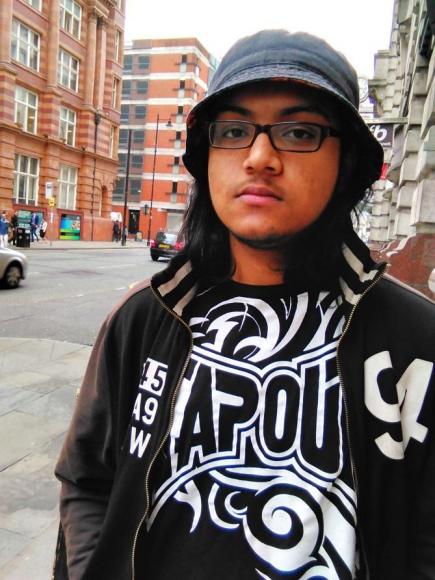
JUSTICE: Himanshu Bhatt beleives courts may be held to account
Himanshu Bhatt, 18, a student living in Rusholme, said: “I think it might act as a deterrent to some would-be criminals – but not for the ‘life’ criminals.
“Also, some people might not like the verdict of a case and might get angry with it. Therefore, I think it might help hold some courts to account.”
The arguments for and against televising court cases are numerous and complex.
Paul Kennedy, 51, said the issue should be decided democratically.
He said: “I think there should be a debate on it to reach a public consensus.”
Image courtesy of BB, via YouTube, with thanks.

